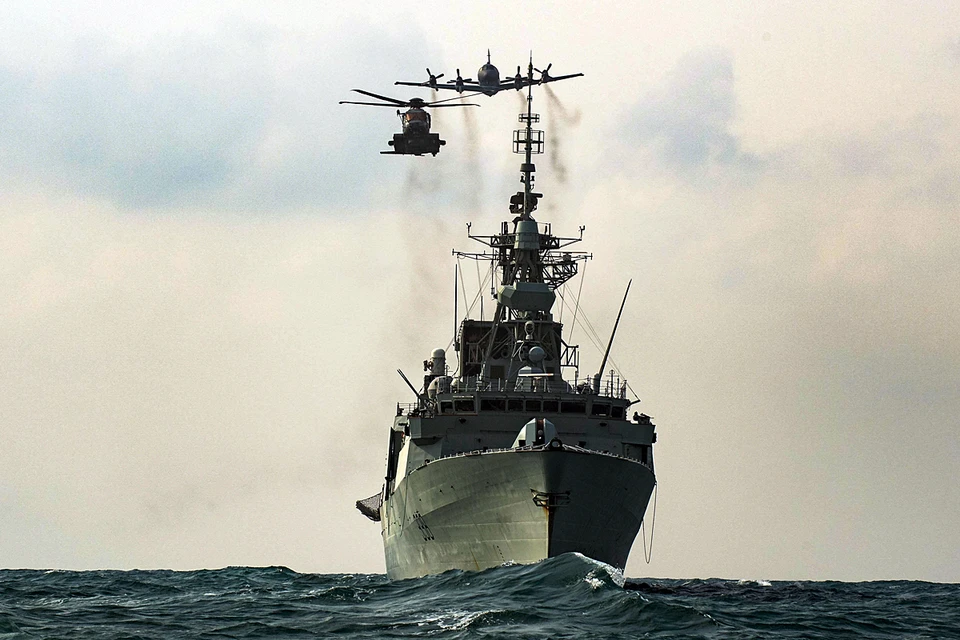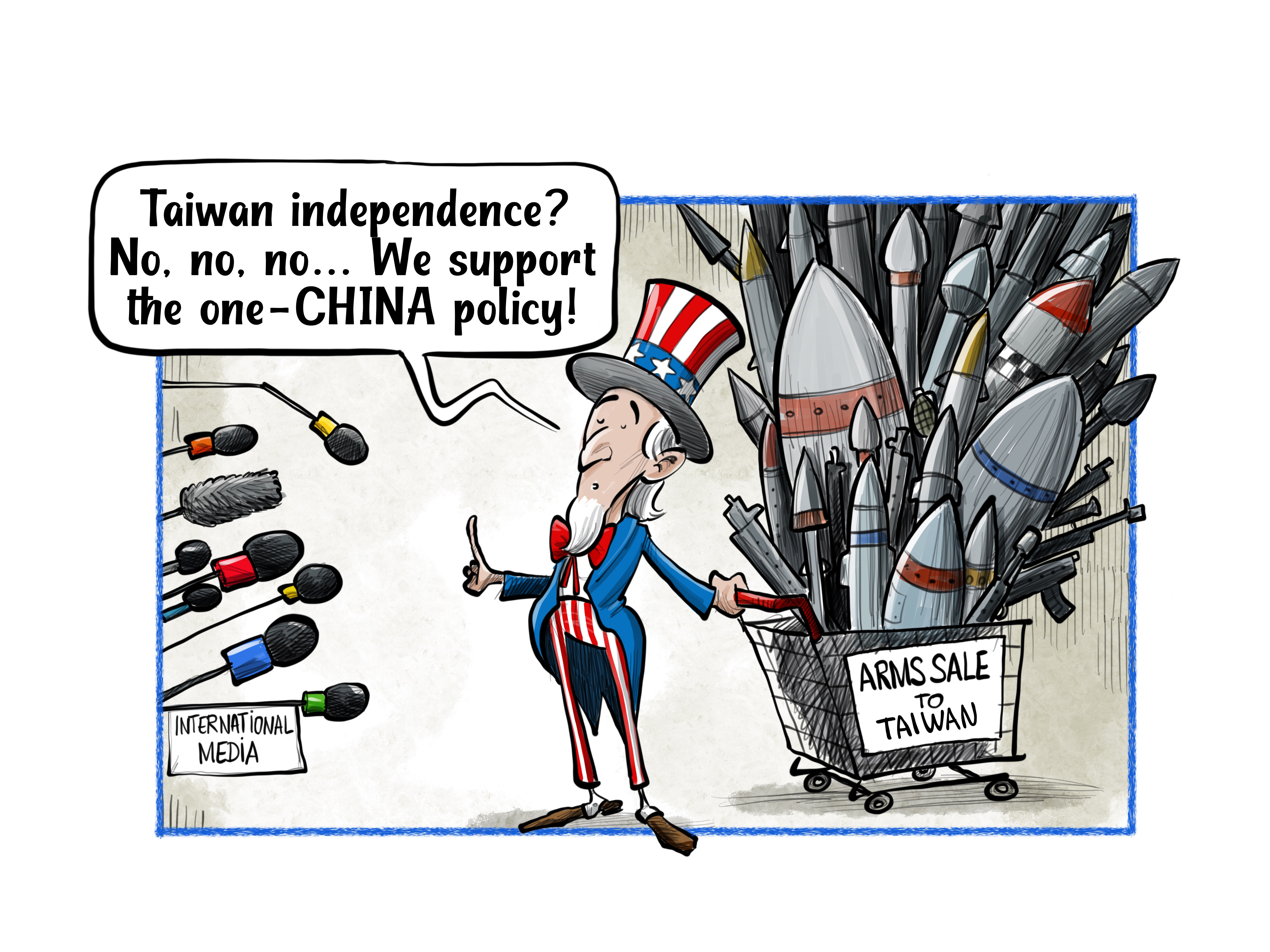
The Stumbling Block of an Island: Why the US Is Prepared To Start a War with China over Taiwan
Speaking before voters, President Joe Biden confirmed that the U.S. is prepared to defend Taiwan if China attacks the island. Simply put, the American president stated that he is ready to go to war with China. It’s becoming even easier to say that a third world war may begin, but not where it was long predicted to start. Not with a Russian attack on the Baltic peoples, as many have openly claimed, but in a completely different part of the world.
It's a well-known fact that the U.S. promised to protect its “unsinkable aircraft carrier," located just 130 kilometers (80 miles) from mainland China. But this promise was prompted and did not just come out of thin air. Throughout October, Chinese military planes repeatedly flew into Taiwan's special air zone, and Chinese troops conducted amphibious exercises on their own coast, but opposite the island. Universal landing ships were also added to the People's Liberation Army of China, surpassing the French Mistrals in their capabilities. The equipment of the Chinese military with the latest high-precision and destructive weapons has changed the balance of power between Beijing and Taipei in favor of the former. Prior to that, the 300,000-member army of the unrecognized Republic of China (the official name of Taiwan) fully maintained parity with the 2 million-member army of the People's Republic of China due to modern American weapons.
All of these changes led to this gloomy forecast by the island’s authorities: By 2025, China would be able to take control of the "separatists" by force. Remember that since 1949, Taiwan has declared itself the “noncommunist China.” For all those years, Beijing relentlessly pursued the “One China” policy, breaking off relations with those countries that recognized Taipei. Even the Americans officially only recognize Beijing. At the same time, mainland China is actively trading and economically interacting with the island, betting on its "gradual return.” But the power in Taiwan now belongs to the Democratic Progressive Party, which has already won twice in a row, and which is going to proclaim an independent "Taiwan Republic." The Chinese comrades promise rather harshly to prevent the implementation of the plans of "separatists and schismatics." Including by the use of military force.
This is the kind of scenario the American president promised to become a part of. Of course, his words are a direct threat to Communist China, which the U.S. officially considers its main adversary. It’s important to note as well that Beijing took similar threats rather calmly last time. Chinese leader Xi Jinping knows how to look his political opponents in the eye with cold-blooded detachment. And if necessary, as it was at the beginning of this year at the Chinese-American talks in Anchorage, the Chinese can quite confidently raise their voices to cool the ardor of the arrogant Americans; they generally react correctly.
Biden's statement about his readiness to defend Taiwan, of course, should be associated with the AUKUS military bloc recently created by the Americans, British and Australians. It's funny that the European allies of the United States in NATO learned about the new alliance from the press. Even its creators did not hide the purpose of AUKUS; opposing the increasing strength of China in the Indo-Pacific region. Biden, it turns out, involved England and Australia in his obligation to Taiwan. Something tells me that Xi is also discussing this problem with his partners, albeit not as loudly as Biden. Beijing constantly emphasizes that it is not going to unleash a new war, but simply, if necessary, will respond.
The fate of Taiwan is an increasing threat to global security. The U.S. president’s words definitely sped up the process. China, without unnecessary theatrics as always, strongly urged the U.S. to “be cautious with its words and actions on the Taiwan issue, and not send any wrong signals to the separatist forces of Taiwan independence, so as not to seriously damage China-U.S. relations and peace and stability in the Taiwan Strait.” It is important to note such a reaction. Politicians in Taipei openly say that Beijing already could conquer the island by force and is only looking for a suitable excuse. In this regard, Biden's words may send a wrong signal to the Taiwanese "dissenters," and they will take steps that will serve as an excuse for the People’s Republic of China to act, which they themselves are so afraid of.
Promoting a possible military clash between China and the United States (with its allies, because Americans prefer not to go to war alone) will also affect European security concerns. If the focus of global stability is shifted to Asia, then it is necessary to understand that the Americans simply do not have enough forces to protect everyone in Europe who has committed to an alliance with them. Therefore, with a divided military, the strong promises that U.S. Secretary of Defense Lloyd Austin made in Tbilisi and Kyiv are only half as feasible. Although he never directly said that the Americans, if anything, would directly "stand up" for Georgians and Ukrainians, he said that "the United States will not allow it."* How it will do that is another conversation.
Of course, American-Chinese interactions are also relevant for Russia. Although we are in second place, we are also officially considered enemies of the United States. If conflict breaks out in the Taiwan Strait, it is unlikely that Moscow will remain on the sidelines. Just remember what the main reason was for Japan's surrender in 1945 — not the atomic bombs dropped on Hiroshima and Nagasaki, as the Americans like to claim. Nearly hundreds of thousands of Japanese cities had already been destroyed in carpet bombings by U.S. aircraft. The decisive factor that forced Tokyo to surrender, according to Japanese military documents, was the entry of the Red Army into the war against Japan. This is the truth, by the way.
*Editor’s note: This quote, accurately translated, could not be verified.

